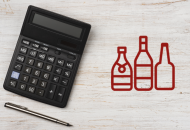Context of the plastic tax in Europe
With the deadline for the implementation of Articles 4 and 5 of the EU Single-Use Plastics Directive of July 3, 2022, the EU is establishing uniform regulations for the internal market to ensure the free exchange of goods and the limitation of the use of some single-use plastic products (such as straws, stirrers or EPS containers for takeaway meals) with the aim of reducing plastic consumption. There is also an EU-wide plastic tax that is transferred to individual countries. However, the implementation is still very different due to ongoing discussions. But it has been implemented in Germany, Austria, Belgium, Portugal and Croatia, and it came into force on January 1, 2023 in Spain.
What is the purpose of the new tax on non-reusable plastic packaging in Spain?
Law 7/2022, of April 8, on waste and contaminated soil for a circular economy includes a new special tax on non-reusable plastic packaging. This tax has far-reaching implications as it affects not only companies involved in the production or distribution of packaging, but also all intra-Community importers or buyers of plastic packaging (with or without content).
The goal of this new tax is to reduce the amount of plastic waste in Spain and to adopt new consumption habits that will be more sustainable.
Which plastics are taxed in Spain?
- Non-reusable plastic containers;
- Plastic semi-finished products intended for the production of single-use plastic packaging;
- Plastic products intended to allow the closure, sale or presentation of non-reusable containers.
How much is the plastic tax contribution in Spain?
The contribution is due according to the weight of the non-reusable plastics and its rate is 0.45 EUR / KG.
Non-reusable containers made of more than one material, including plastic, will be taxed in proportion to the weight of the plastic they contain.
It is therefore important that you are aware of this new tax and that you take the necessary steps to comply with it if you are concerned.
The tax is levied throughout Spain, including Ceuta, Melilla and the Canary Islands.
Intra-community acquisitions and imports have been defined in the regulation to ensure that tax is also paid on products produced in other countries but consumed in Spain.
This also applies to online sellers outside of Spain if they deliver directly to private end consumers in the country. And will therefore also be subject to the plastic tax.
There are certain non-reusable packaging which may be exempt from this tax. However, only a case-by-case analysis of the packaged products can confirm this. Note that in the event of an inspection by the Spanish authorities, it is recommended to keep the record of this tax payment.
On the other hand, following the difficulties encountered in the field, the methods for calculating and collecting the plastic tax will soon be reviewed.
What are the VAT regulations in Spain?
Value Added Tax (VAT) in Spain is a 21% tax that applies to most goods and services. This tax is collected by companies and then paid to the Spanish government. Businesses must register with the Spanish Tax Agency in order to charge VAT, and then file VAT returns quarterly.
How can a foreign business be VAT compliant in Spain?
Foreign companies that sell goods or services in Spain must register for VAT with the Spanish Tax Agency. The company must provide its business name, address and tax identification number (TIN) when registering. Once registered, the business must file quarterly VAT returns and pay any applicable VAT to the Spanish government. The business must also keep accurate records of all sales and purchases to ensure compliance with Spanish VAT regulations.
Eurotax offers you its service to register for VAT in Spain. Eurotax also ensures your compliance and helps you with Spanish VAT refunds if you are eligible. Do not hesitate to contact us for any request for information concerning our VAT service in Spain.






















